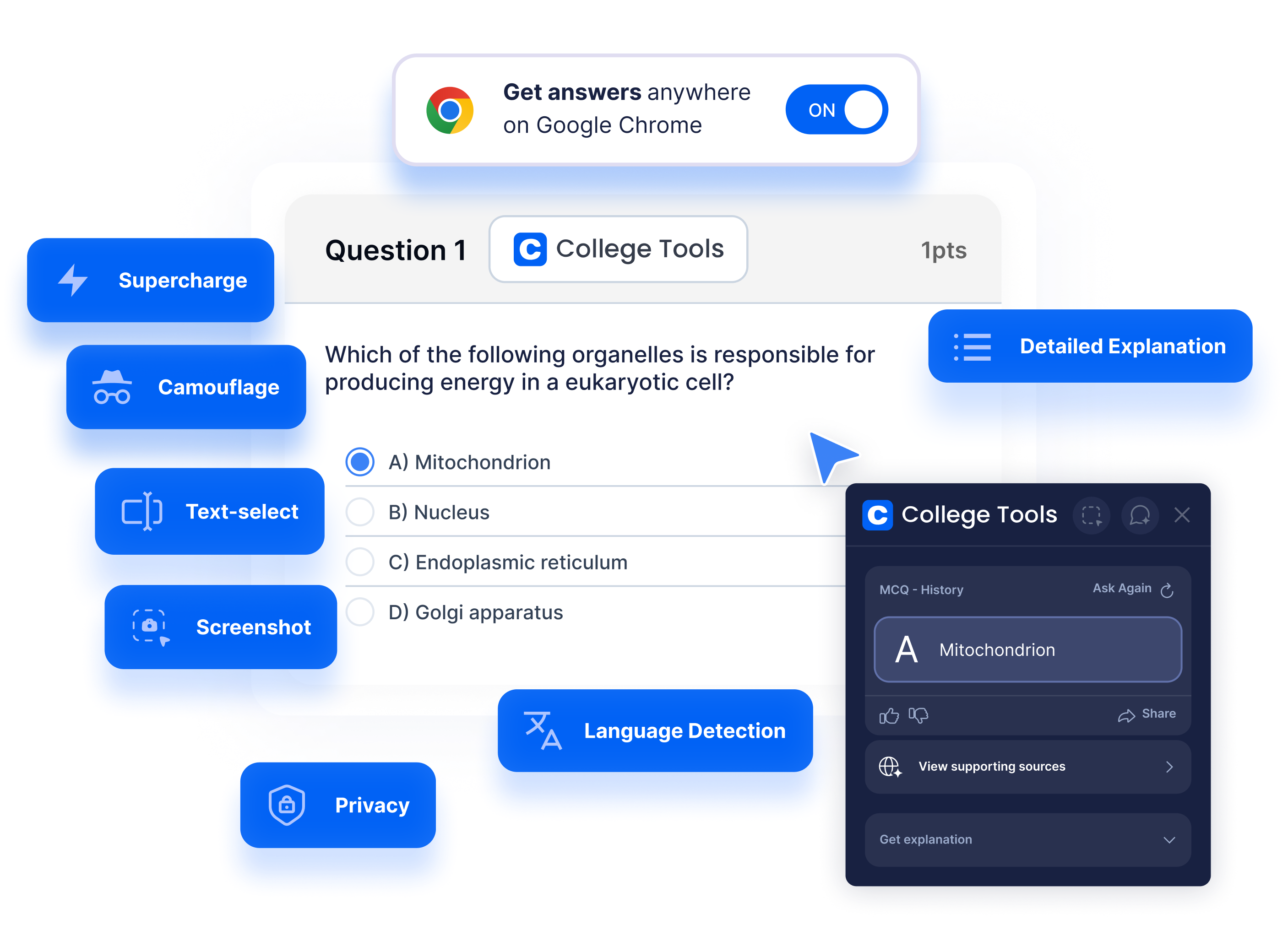What is an AI Math Problem Solver?
Times are gone where students have relied on physical calculators for their general math queries.
An AI Math Problem Solver is a piece of software where you can input entire equations or even word problems, and the AI will try to figure out the solution.
These solvers use a combination of machine learning and text prediction to understand your input, the context of your problem, and methodically apply the appropriate rules to solve it.
And if you wanted, you can even ask follow-up questions to explain how it reached the answer step-by-step. In this article, I'm going to be discussing how you can use these tools to enhance your studying efficiency.
Key Features to Look For In These AI Solvers
Before signing up for an AI math helper tool, you'll want to make sure it does certain things that will actually be beneficial to your study. Here are some of the features that I'd look for:
Step-by-Step Breakdowns
Just having someone give you the answer directly would defeat the purpose entirely. Think about it, You could just flip to the back of the textbook if all you wanted was the answer.
The whole point is to have the actual working out shown to you in a digestable and easy-to-understand manner. So make sure the tool actually has this within its capabilities.
Coverage of Topics
Make sure the solver supports the math topics you're actually studying. Whether it’s algebra, calculus, or something else, choose a tool that fits your needs and isn't going to fall short in functionality.
User-Friendliness
The interface should be easy to use. When you're already frustrated being stuck on a problem, the last thing you want is to have the homework helper AI be difficult to navigate and have complicated input methods.
CollegeTools’ interface is simple—you can type ‘x + 3 = 7’ and get a solution fast, no complicated steps.
Reliability In Its Output
With so many data sets AI are now trained on in 2025, it's hard to know which ones have the lowest error rate. This is crucial to verify especially in subjects like maths, where precision is key.

Many students struggle with accuracy when solving math problems, which is why I tested an AI math problem solver that claims to be 98% accurate. The results were impressive—it provided step-by-step explanations, making even difficult problems easier to understand.
How to Use AI Math Solvers Effectively
One student, Sarah, struggled with calculus homework and spent hours searching for explanations online. After using College Tools, she finally understood derivatives step-by-step—and her test scores improved by 15%.
First Things First, Start with the Basics
Feel out the prompts and how the AI responds to the specific instructions you give it. This will give you a good idea of its strengths and limitations.
Use It As If It Was Your Tutor
Ask it questions. If you don't make sense of it, ask it a follow-up question. Unlike humans, the AI will never get impatient with you, even if you think what you're asking is a 'dumb question'.
Validate Learned Methods on Other Questions
An article by the United Nations University warns that "an AI trained on biased data will produce biased results, regardless of how accurate its predictions appear."
So always double-check the AI’s answers, because trust me, they can and will make mistakes. You don't want to be that guy blaming AI if it does end up causing gaps in your knowledge.
Common Pitfalls to Avoid
Here are some mistakes that many students make:
Over-Reliance
The solver is a tool in your toolbelt, not a replacement for your brain or a substitute for learning. Don’t depend on it for everything.
Not Actually Processing the Solution
You need to know how the AI arrived at the answer. Otherwise, you’re just memorizing answers, not legitimately learning.
Inputting Problems Incorrectly
AI's input processing capabilities are strong, but make sure you're not giving it a blurry image, or writing things out inaccurately. Sounds silly, but every detail counts in maths.
Blindly Trusting the AI
AI isn’t perfect, and so while it might feel uncomfortable approaching your teacher or professor for help, sometimes it's the best way to verify and consolidate your understanding.

Benefits and Limitations
Here’s what you can expect from an AI math helper:
The Good Stuff
- It's Instant and accessible: You get to solve problems quickly especially even when you're stuck and have no one around to help.
- It walks you step-by-step: Lets you know how to actually reach the answer.
- Good at tackling complexity: AI is usually pretty good at handling advanced maths like calculus, statistics, and even differential equations.
The Not-So-Good Stuff
- Over-Reliance: Don’t let the AI do all the work; you need to practice the concepts because you won't have it in the exam.
- Potential for Errors: I'm sure there will come a time where AI can completely replace the need for mathematicians, but that time ain't quite here yet.
Think of AI as your training wheels. They help you get started, but eventually (in the exam, which is what actually matters), you'll need to take them off.
You’ll need to solve problems like ‘x - 5 = 10’ solo in tests, so practice without it.
Frequently Asked Questions
Are There Any Tools You Suggest I Start With?
If you're looking for something that doesn’t just spit out answers but actually teaches you the steps, I’d recommend trying out CollegeTools' Chrome extension.
It’s designed to guide you through each problem, ensuring you actually learn rather than just memorize answers.
It has over 250K+ likes on TikTok and students have found this to be incredibly helpful in preparing for their examinations.
What Are Some Affordable Options For a Maths Solver?
Before buying into a suite of homework helper AI tools, try our free tool first to see if its to your liking.
Then consider subscribing if it clicks with what you're looking for.
Can CollegeTools Handle Complex Math?
Yes, it tackles calculus—like derivatives—or stats problems with clear steps.
Wrapping It Up
I’m affiliated with CollegeTools, but my advice is based on real student feedback and testing. These apps can be extremely beneficial, but they should be used as study aids, not shortcuts.
They can help you solve problems quickly, understand solutions, and improve your skills, but they won’t replace the effort and practice needed to master math.
Want to make studying math easier? CollegeTools’ free AI math problem solver can simplify your homework—check it out if you’re ready to boost your skills!













